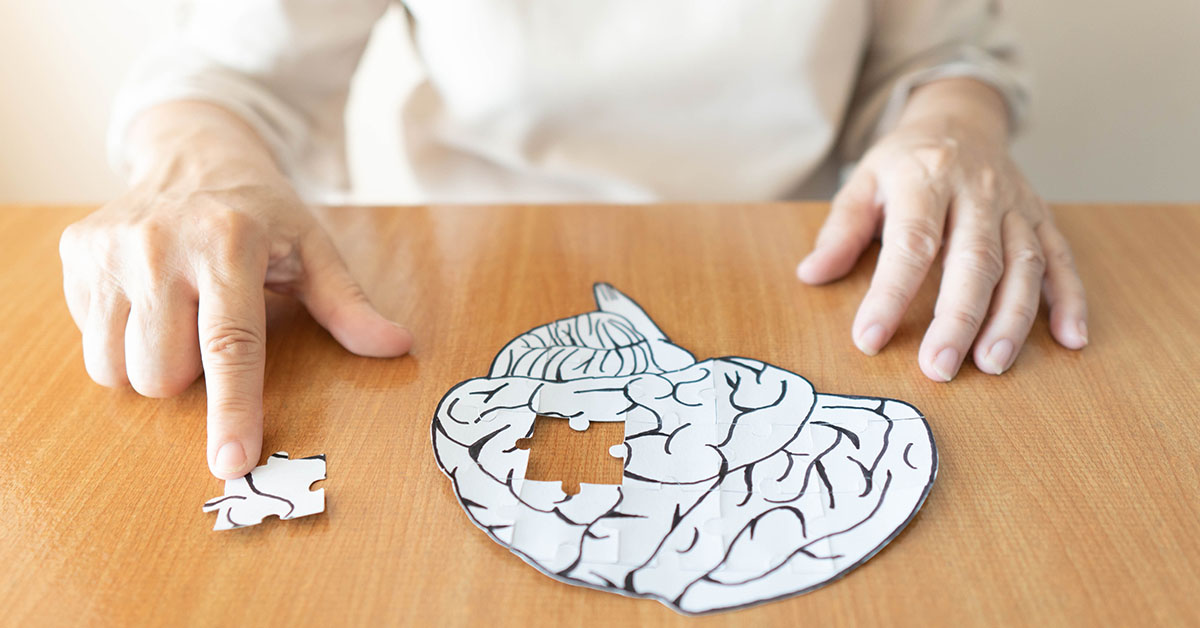
Alzheimer’s disease is the most common type of dementia. According to the Alzheimer’s Association, it accounts for 60-80% of dementia cases. For Alzheimer’s & Brain Awareness Month this June, we’ll be reviewing the early signs of Alzheimer’s Disease. If you know the signs of Alzheimer’s, you may be able to detect it early.
Early detection may have benefits. Getting an early diagnosis can allow people to participate in clinical trials for the latest therapies. It is also possible that taking FDA-approved medications and making brain-healthy lifestyle changes when you have early-stage dementia can be beneficial.
1. Memory Loss
Most people associate Alzheimer’s disease and dementia with memory loss. So, it’s not surprising that one of the early signs of Alzheimer’s is forgetting things even recently learned information. People in the early stages of the disease may also forget important dates and rely on memory aids like reminder notes. They may also frequently repeat questions that you have already answered because they have forgotten the answer.
2. Difficulty Planning or Solving Problems
3. Confusion About Time Or Place
Another early sign of Alzheimer’s disease is confusion about dates, seasons, and the general passion of time. It may be difficult for them to process things that are not happening immediately, so referencing things that are happening in the future or things that happened in the past may cause confusion. They may also forget where they are or how they got somewhere.
4. Difficulty Completing Familiar Tasks
A person in the early stages of Alzheimer’s or dementia may find themselves unable to do things that they have been doing for years. They may be driving and forget the route they’ve taken home for 25 years. They may have trouble completing simple tasks like writing a to-do list or cooking a meal.
5. Personality and Mood Changes
If someone is experiencing sudden mood or personality changes, that could be a sign of Alzheimer’s disease. They may become fearful, anxious, depressed, or confused. They may become more easily upset, especially when they are out of their comfort zone in unfamiliar surroundings.
6. Trouble with Visual Images
Sometimes people with Alzheimer’s disease have vision problems. They may find it difficult to identifying or distinguishing between colors. Their judgment of distance or spatial relations may decline as well. This can make activities like driving difficult or impossible.
7. Problems with Speaking or Writing
The person may find it difficult to have conversations and put together sentences. They might call things by the wrong name. This can make it hard for them to join in on conversations. Coupled with memory loss, this can cause them to repeat the same anecdotes or stories over and over.
8. Misplacing Things
One of the early signs of Alzheimer’s disease is misplacing things. People don’t just forget where they put things, but they will put items in unusual places. It is also difficult for them to retrace their steps to look for the lost item. In some cases, people with this symptom may be convinced someone stole the item they’re looking for.
9. Poor Judgement & Decision-Making
If someone is in the early stages of dementia, they may make poor decisions regarding things like money. They may also decide that things like staying clean or well-groomed are not important and stop caring for themselves in that way.
10. Withdrawal from Professional & Social Activities
Many people with Alzheimer’s disease or dementia will withdraw into themselves. They may not be able to start or maintain conversations so they will avoid social situations and conversations at work.
Regional Neurological Associates is happy to report we are reopening to see patients in-office. Patients can now make same-day appointments and expect to be treated with the best care and attention. Our current office hours are: Monday – Friday from 9 am – 4 pm. If you have questions or concerns about your neurological health, call us at (718) 515-4347 to make an appointment.
While we are pleased to be seeing patients in the office again, we ask that anyone experiencing symptoms like fever, cough, or shortness of breath reschedule your appointment or schedule a telemedicine appointment. Please contact our office to change your in-person visit to a Telehealth visit (718) 515-4347.


